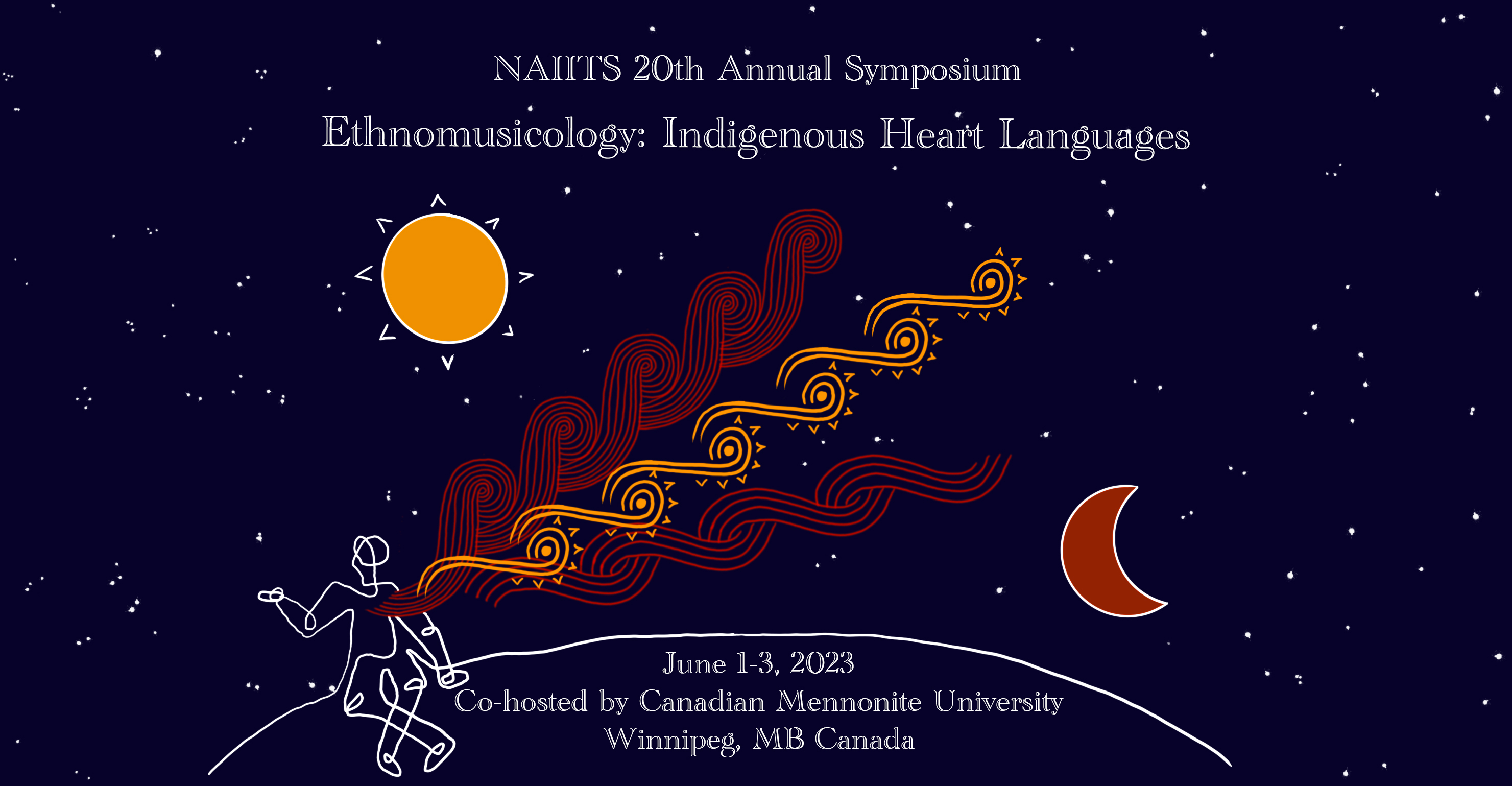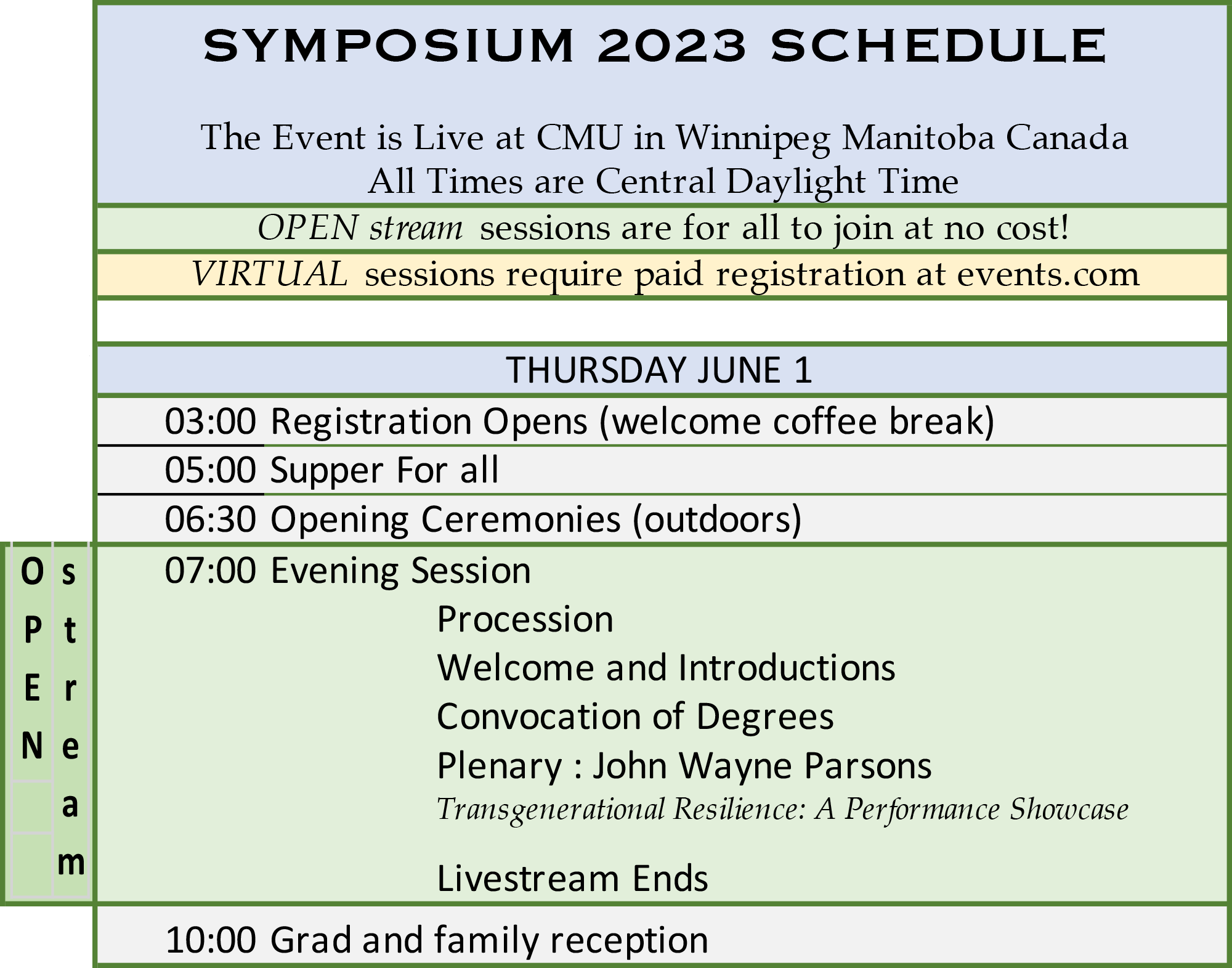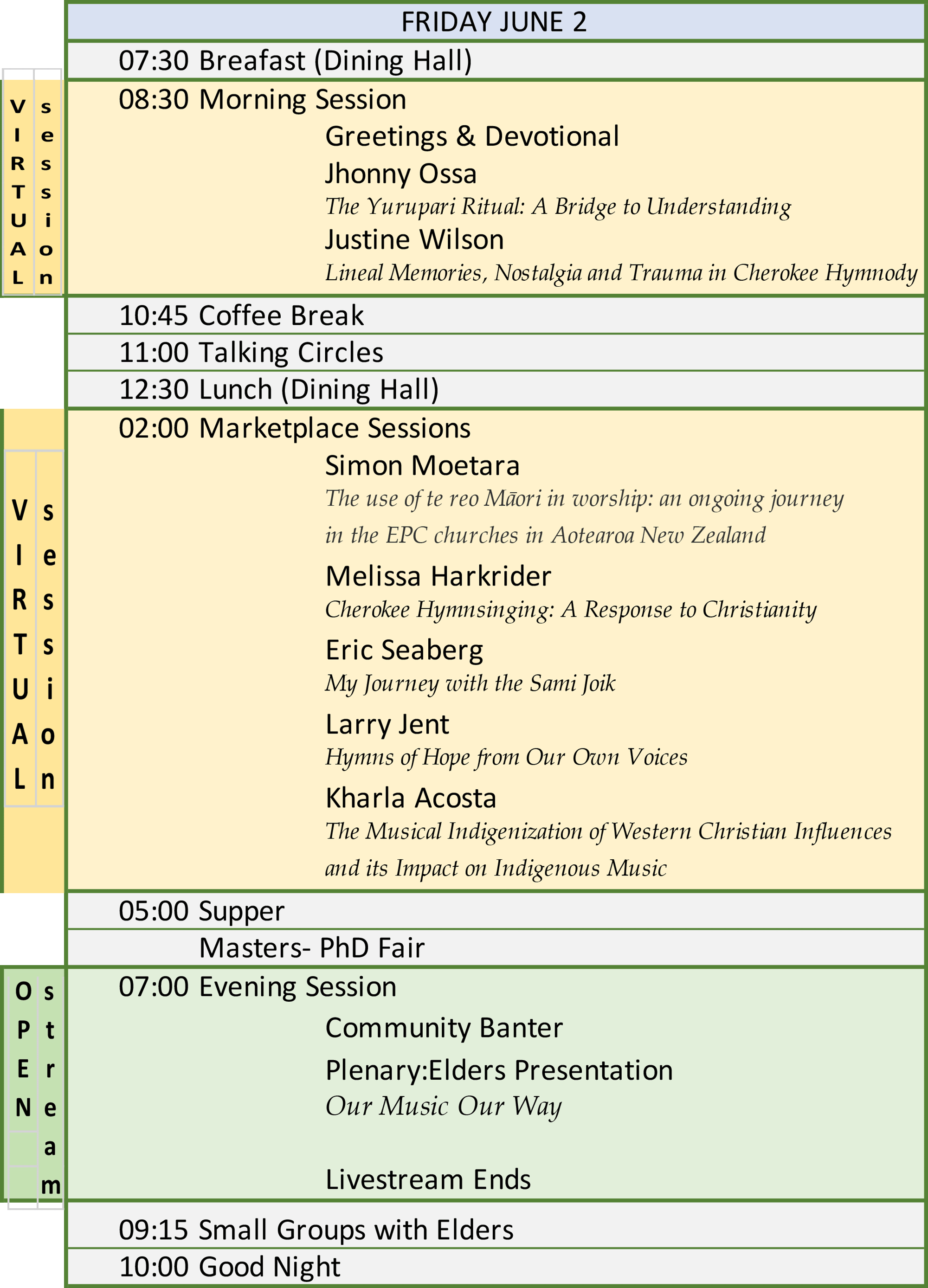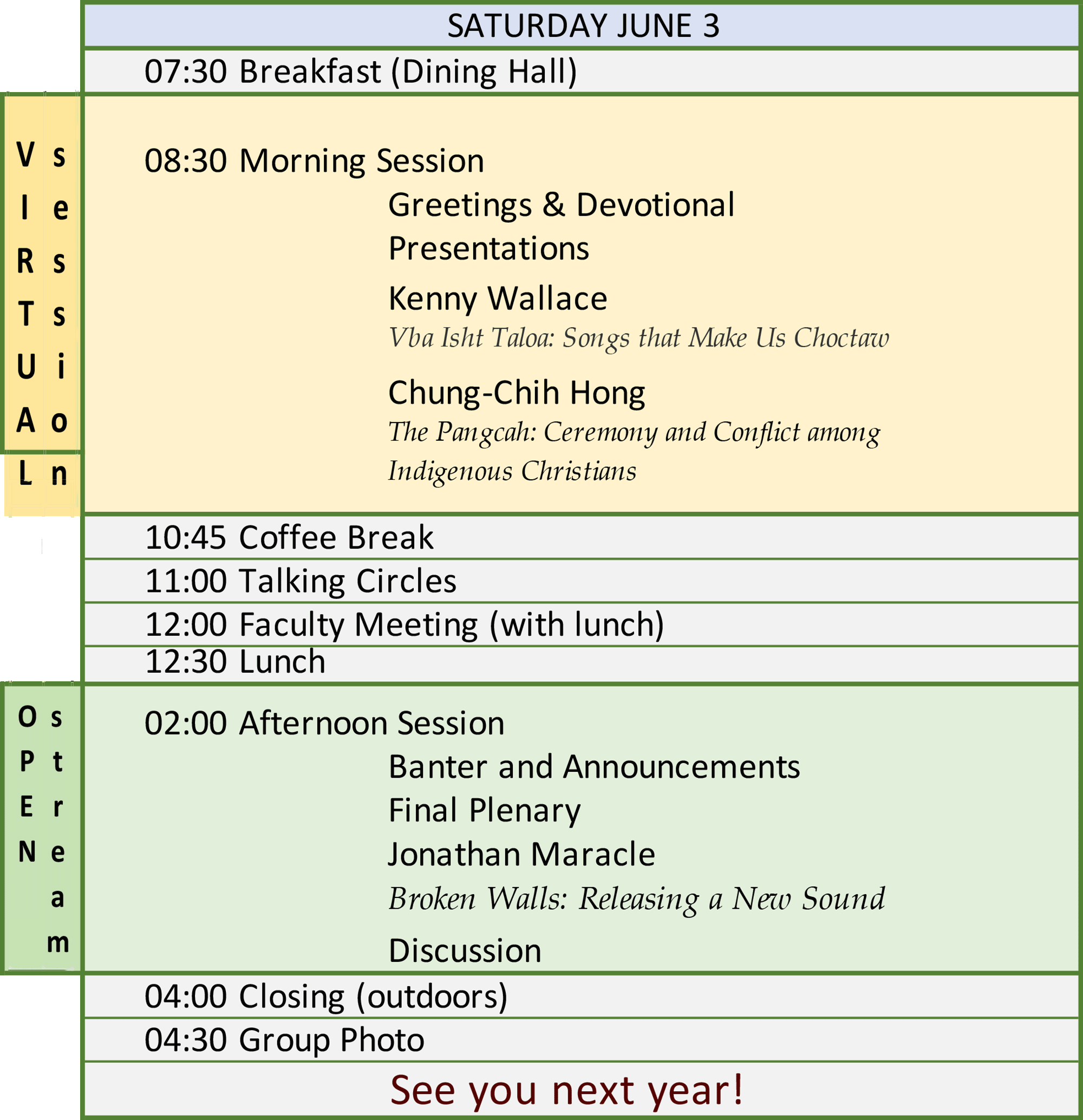
Indigenous peoples express themselves in many musical and artistic forms. The sound and feel of their own music elicit sensibilities of home and familiarity. A fundamental aspect to Indigenous cultural and national restoration has been the flourishing of each nation or cultural group’s style of music and art. The colonial project worldwide has meant the death of Indigenous aesthetics and forms.
1996 saw the first World Christian Gathering on Indigenous People and the honouring of Indigenous cultural protocol, music, and artistic expression. Through eight global WCGIP gatherings the idea that Christian expression can authentically be celebrated in Indigenous ways, forms, and sounds broke the stranglehold of particularly Western Christian musical hegemony.
The early joy at this aesthetic liberation sparked a flurry of Indigenous cultural expression in Christian settings. This both surprised and offended many. Charges of syncretism and appropriation have been leveled at many engaged in restoring their cultural practices. This is the lively context for this Call for Proposals for the 2023 NAIITS Symposium, June 1-3, 2023, in Winnipeg, MB, Canada.
Ethnomusicology examines music in its social and cultural contexts to understand what music is and what it means to its practitioners and audiences. As a highly interdisciplinary work, people working in the field may have training in music, cultural anthropology, folklore, performance studies, dance, cultural studies, gender studies, race or ethnic studies, or other fields in the humanities and social sciences. Ethnomusicologists employ a global perspective on music (encompassing all geographic areas and types of music), understanding music as interrelated with its social and cultural contexts, and engage in ethnographic fieldwork (observing and participating in music-making and related activities) and in historical research.
Scholars and practitioners are encouraged to make proposals that highlight the diverse aesthetics (musical and otherwise) of Indigenous peoples in Christian and Indigenous settings. Joint submissions by related proposals may be made highlighting their common theme(s).
For the 2023 symposium, we invite people who desire to present a paper or “panel* on one of the themes identified above to submit an abstract and proposal for consideration. In the abstract, please outline the intention of the paper as well as the method(s) of research and presentation. Please also submit a bio and photo (or bios in the case of a panel) of the presenter(s) for use in promotion of the symposium.
We invite proposals for papers and presentations from scholars, scholar-practitioners, community practitioners, ministers, and other interested peoples that address themselves to the topic of this year’s symposium.
Of particular interest will be explorations of the interplay of Indigenous traditions of music and musical understanding that, among other possibilities, might
- Support an increased understanding of the mutuality of authentic Christian faith in the context of authentic Indigenous life
- Expand on the use and role of Indigenous musical styles and instruments in ministry and Christian ceremony
- Explore the intersection of Christian liturgy with traditional musical and cultural expressions leading to a deeper experience of Christian faith and life in Indigenous communities
- Highlight contemporary and traditional blends or fusions which transform our understanding of what constitutes authentically Indigenous and authentically Christian
Papers using any of a broad range of research and presentation methodologies will be considered. Submissions should address one or more of the topic areas as noted above.
Papers should strive to demonstrate how traditional Indigenous understandings, cultural perspectives, and historic practices, in conversation with biblical Christianity might strengthen the mediate the impact of Indigenous music peoples being separated from their traditional land and place in the urban environment.
The purpose of the symposium is to facilitate open dialogue about various aspects of Indigenous biblical and theological contextualization in thought, history, and experience. Symposium planners hope that, in their submissions, participants will bring together academic and practical approaches to the issues being addressed in the symposium.
Submission Guidelines
Submissions must include a brief personal bio, a photo and both an abstract and proposal for the presentation of not more than 300 words in total. The proposal must include a clear statement of your ideas and, if a scholarly presentation, enough of a context to show that you are aware of the basic issues and literature of the field.
- a) Papers and/or panels*
- Papers should be both theoretically solid and simultaneously practical. Submissions will be evaluated in light of their potential to contribute to the Symposium. To encourage dialogue, we welcome submissions from various perspectives, from Indigenous presenters as well as those from supportive non-Indigenous presenters. Scholarly papers must adhere to the latest Chicago Turabian formatting style; in Times Roman 12 pt. font; and have complete footnotes and Works Cited. Please refer to the NAIITS Journal Style Guide for more information. Papers may be distributed to selected respondents at the sole discretion of NAIITS. Presented papers will be published in the NAIITS Journal after a peer-review process.
- b) Practitioners
- If the proposal is for a more practitioner focused presentation – something very much welcomed – then the proposal should describe the individual’s community of practice, the length of time the person has been in that community of practice, the connection the practitioner is making to the topic under consideration and how the presentation is intended to be given.
Regardless of whether the intent is paper, panel, or practitioner, the proposal is the document on which submissions will be evaluated and selected. Abstracts, bios and photos provided for selected submissions will be used in advertisements and symposium materials. Selected papers will be allotted 40 minutes for presentation and the presenter may be required to pre-record the session due to the virtual format. NAIITS may, at its sole discretion, invite or offer respondents for the papers.
The deadline for submission of proposals for papers is midnight local time January 31, 2023. Please submit electronically at symposium.proposals@naiits.com
Finished papers must be submitted in the above style no later than March 31, 2023 so as to be included in the symposium.
*PLEASE NOTE: Panels will only be accepted if the panellists also submit a paper – either jointly or individually – for publication in the annual NAIITS journal. A simple PowerPoint presentation will not be accepted.*
**There are many ways in which music and the arts conserve, preserve, and promote Indigenous peoples’ ways of knowing, being, and doing around the globe. Our intention here is neither to restrict or prescribe for any Indigenous people group their understanding of or use of terms that differentiate music, arts, culture and connections to their cultures. We invite Indigenous people to insert their own words and descriptors as suits their convention in places where appropriate.
NAIITS
- Is a member of Indigenous Pathways (IP), a non-sectarian, non-profit charity devoted to ministry with and within the Indigenous context.
- Is the educational member of the IP family dedicated to encouraging the development and articulation of Indigenous perspectives on theology and practice rooted in life as followers of the Jesus Way.
- Addresses scriptural, theological, ethical, and social engagement issues from Indigenous perspectives.
- Facilitates the creation of a written theological foundation for a) the visioning of new paradigms of ministry with and by Indigenous peoples; and, b) the contextualization of faith in Indigenous contexts.
- Facilitates the development and implementation of Indigenous learning styles and “world views” in written work and publications.
- Facilitates the development of theological partnerships with other cultural communities of following the Jesus Way of faith to explore intercultural expressions of that faith.
- Is committed to genuine dialogue with the historical traditions of following Jesus and values the written and living resources encompassed in these traditions.


